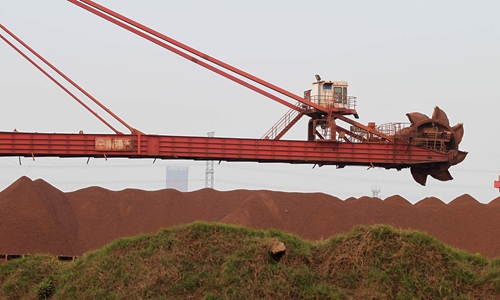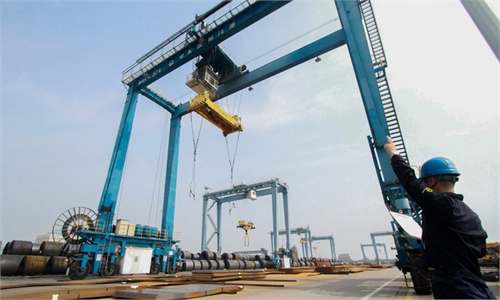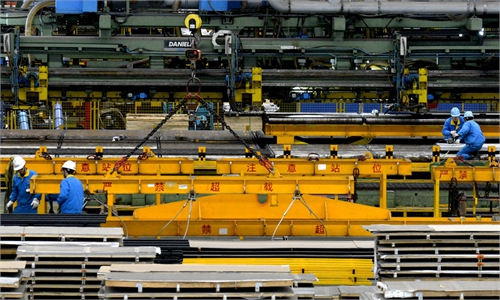
Cranes load iron ore at a port in Nantong, East China’s Jiangsu Province. File photo: VCG
According to a statement from National Development and Reform Commission (NDRC), the meeting was held because of continuous and drastic increase of some commodities since the beginning of this year. The rise is attributable to market speculation as well as an overall rise in commodity prices in global market, according to NDRC.
The government also required the companies and industry associations to think beyond their own bottom line, and to avoid market manipulation and price gouging. Government regulators will closely monitor the prices of commodities, and have zero tolerance to irregular trading or price gouging, the statement said.
The prices at factory gates of goods in China rose at the fastest growth in more than three years. In April, China’s producer price index rose 6.8 percent year-on-year, up from the 4.4 percent growth recorded in March.
By mid-April, the futures price of copper had increased by 18.23 percent compared to the beginning of this year, reaching 68,540 yuan ($10,653) per ton, up 65 percent year-on-year. Futures price of aluminum also increase 49 percent year-on-year, reaching 18,005 yuan per ton. After the government’s efforts to rein in the price spike, prices of copper and aluminum dropped by 6,000 yuan ($932.4) and 1,500 yuan by mid-May.
Rising international bulk commodity prices are caused by the global economic recovery, tightening international raw material production and supply as well as constrained global transport capacity - combined with loose monetary policies implemented by some major developed economies, according to Fu Linghui, spokesperson of National Bureau of Statistics (NBS), at a press conference in early May.
Apart from the NDRC, the Ministry of Industry and Information Technology, State-owned Assets Supervision and Administration Commission of the State Council, State Administration for Market Regulation and China Securities Regulatory Commission have participated in talks with commodities firms.


